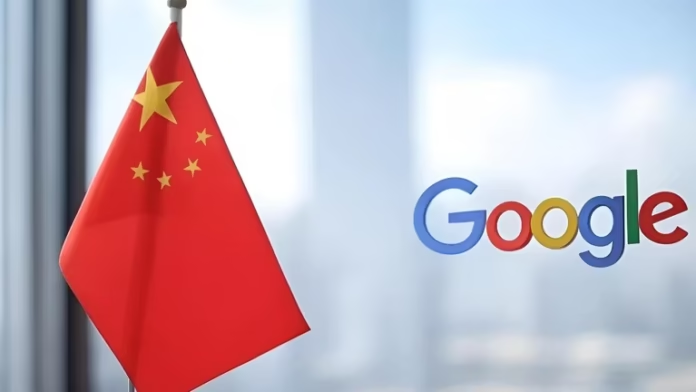China has taken a series of retaliatory steps against the additional tariffs imposed by the US on Chinese products . In this context, China’s State Administration for Market Regulation (SAMR) announced that it has launched an antitrust investigation into Google . According to the statement, there are strong suspicions that the US-based technology giant has violated China’s competition laws. Although Google’s search engine services have been blocked in China since 2010, the company’s other products and services are used in collaboration with Chinese technology companies. It is currently unclear how the investigation will affect these business partnerships.
On the same day, the Chinese government announced that it was imposing additional customs duties on various products imported from the US. Energy products such as coal and liquefied natural gas (LNG) will be subject to a 15 percent additional tax, while crude oil, large vehicles and agricultural equipment will be subject to a 10 percent additional tax. These steps are reportedly in response to the new 10 percent customs duties imposed by the US on Chinese goods. The Beijing government emphasized that this decision aims to protect its legitimate rights within the framework of the World Trade Organization (WTO).
Export restrictions on critical minerals
In addition, China’s Ministry of Commerce announced that it would impose restrictions on the export of some strategically important minerals. These minerals include tungsten, tellurium, bismuth, molybdenum and ruthenium, which are vital for technology production. The need for such resources is particularly high in sectors such as semiconductors, electronics and high-tech defense industries. China’s export restrictions could create significant disruptions to global supply chains.
China’s economic steps indicate that the ongoing trade war with the US has flared up again. The easing of tensions between the two countries in recent months has provided a short-term relief. However, new tariffs and mutual sanctions indicate that the competition between the two economies will continue to increase. Experts warn that these developments could particularly increase global production costs and slow down the pace of economic growth.
On the other hand, it was announced that US President Donald Trump plans to hold a phone call with Chinese President Xi Jinping soon. Trump stated that if an agreement is not reached, the tariffs the US will apply will be “much higher.” However, no details were shared about when the talks between the two sides will begin.
Meanwhile, the US was expected to impose additional customs duties on Canada and Mexico on the same day. However, these duties were postponed for a month. The postponement decision was made in order to hold new negotiations with these countries on security and trade issues. Such a postponement is not yet on the agenda for China.
The monopoly investigation launched against Google is seen as an indication that China may take a tougher stance against US tech giants. Many observers believe that this investigation could be a symbolic move and that China may start to support domestic tech companies more in its own domestic market. On the other hand, Google has not yet made an official statement about the investigation.
The ongoing trade tensions between China and the US continue to have an impact on the technology world. The strategic moves of both countries are not limited to just the two economies but can significantly affect global production, trade and supply chains.


